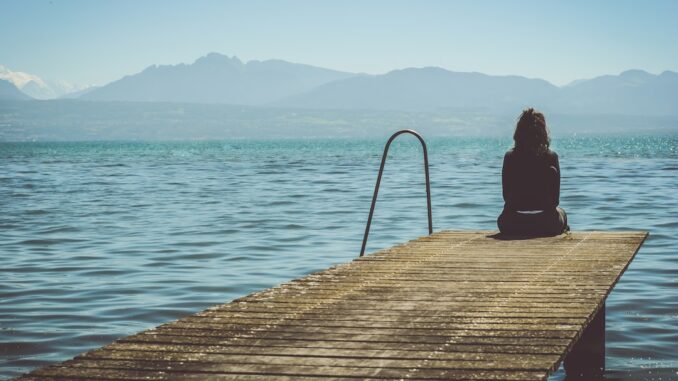
Summary
This article explores the heightened risk of depression among older adults experiencing recurrent falls. Researchers analyzed health records, finding that recurrent falls significantly increase the likelihood of depression. The article emphasizes the importance of fall prevention strategies not only for physical well-being but also for mental health.
Reliability and uptime matter in healthcare TrueNAS provides 24/7 support when it counts.
** Main Story**
Falls are a serious issue for older adults. It’s not just about the immediate physical harm, like broken bones. Falls can really impact someone’s independence and social life, sometimes leading to a downward spiral. And this, in turn, can fuel a variety of psychological issues, most notably depression. You see, it’s all connected.
That said, a study came out recently, December 18, 2024, and it really highlighted the link between falls and depression. The researchers looked specifically at how recurrent falls ramp up the risk, and honestly, the findings were pretty stark. It underscores the importance of having really comprehensive interventions. We need to be addressing both the physical and mental health aspects for this vulnerable population.
Diving into the Details of the Research
The team over at Virginia Commonwealth University Health System (VCUHS) took a deep dive into electronic health records from the TriNetX network, focusing on data from 2023. They honed in on adults aged 65 to 89. Essentially, they split the group into those who had experienced just one fall, and those with repeat incidents.
What did they find? Well, a pretty significant difference in depression rates. For those with an initial fall, about 16.6% experienced depression. However, that number jumped to a whopping 25.7% for those with recurrent falls. That’s a nearly 10% increase, showcasing the serious connection between repeat falls and depression. In fact, the study even showed recurrent fallers had nearly 50% higher chance of developing depression.
A Little More on the Numbers
Of course, like any good study, they looked at demographic factors. And this is where it gets interesting. Among those younger adults aged 65 to 69, it seemed like women were more likely to experience depression than men—we’re talking 30.5% versus 20.1%. You see, that said, you can’t paint everyone with the same brush, though. And also, here’s another key takeaway: if someone already had anxiety, a fall really seemed to amplify the risk of depression. It essentially tripled the likelihood.
Why Prevention is Key
Okay, so what’s the big takeaway? Preventing falls isn’t just about physical safety. It’s also about protecting mental well-being. That might sound obvious, but you know, sometimes we’re so focused on the immediate physical risks that we forget the bigger picture. Preventing falls can actually ward off other mental health challenges, including depression, post-operative cognitive decline, and even dementia.
What Can We Do? Tailored Strategies.
So how do we do it? Tailored strategies are key here. Balance training is a good start, and of course home safety modifications are a must. Something like, cognitive therapy can work really well too. These strategies aren’t just about stopping falls, they’re also about helping people recover better and improving their overall quality of life.
The Wider Impact
It’s easy to focus on the physical injury, a broken hip for example. I remember my grandpa fell in his garden a couple of years back, and while the physical therapy helped him heal, it was the fear of falling again that really got to him. And that fear, that loss of independence, all that, contributed to him feeling down. He wasn’t able to do his gardening as much which made him feel useless, he eventually became depressed. Falls, they have a psychological toll. Falls can seriously knock someone’s confidence, leading to anxiety, depression, and a decreased sense of self-worth. It can create a vicious cycle, you know? The more anxious you are, the more likely you are to fall again. So it’s absolutely vital to address both the physical and mental sides to ensure optimal recovery and improve overall well-being.
So what does it all mean? Well, as of today, March 1, 2025, the information from the article is accurate and relevant, but of course, further research may uncover even more. At the end of the day, it’s a reminder to be proactive, to think holistically, and to prioritize the well-being of our older adults. It’s about more than just preventing a broken bone, it’s about preserving their quality of life. And hey, isn’t that what really matters?


Recurrent falls leading to depression – now that’s a slippery slope! Maybe Elegancia Homes could sponsor a bubble-wrap suit design competition for seniors? We could revolutionize fall prevention and boost morale with fashionable safety!
That’s a fantastic idea! A bubble-wrap suit design competition could really spark innovation. We could explore different materials and designs that prioritize both safety and style. Maybe incorporate some smart technology for fall detection and assistance? It’s great to think outside the box!
Editor: MedTechNews.Uk
Thank you to our Sponsor Esdebe
So, 25.7% of recurrent fallers develop depression? Guess I’ll just stay indoors and embrace my newfound love of interpretive dance… in a padded room, naturally.
Love the interpretive dance idea! Maybe we could incorporate movement-based therapies into fall prevention programs? It’s a fun way to address balance and coordination while boosting mood. A padded room is optional, of course!
Editor: MedTechNews.Uk
Thank you to our Sponsor Esdebe